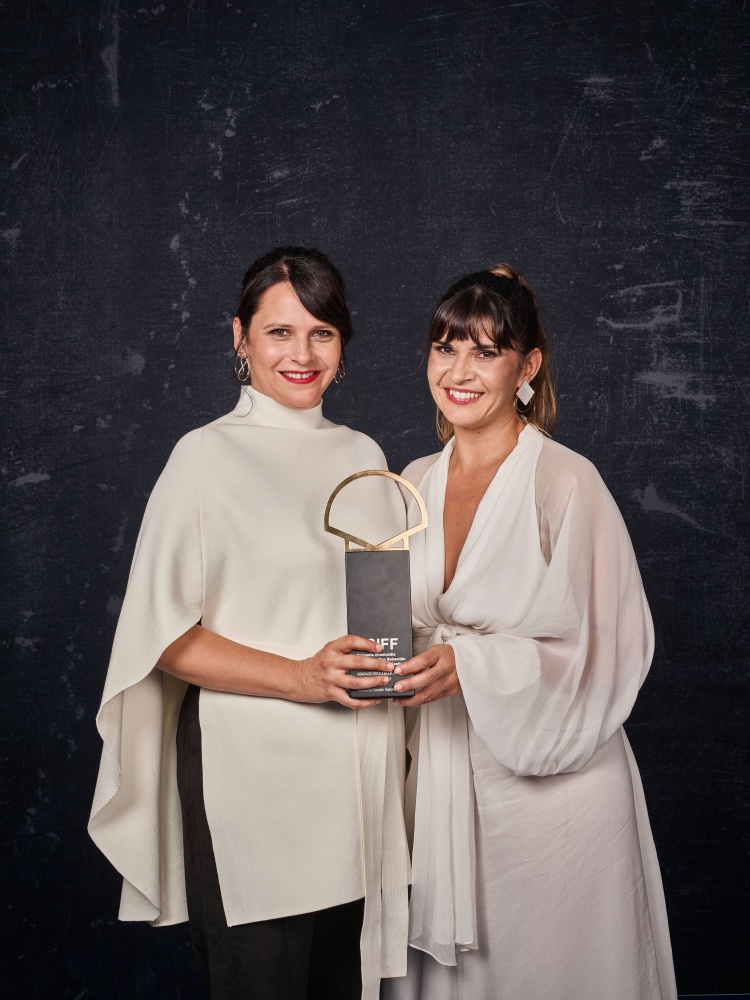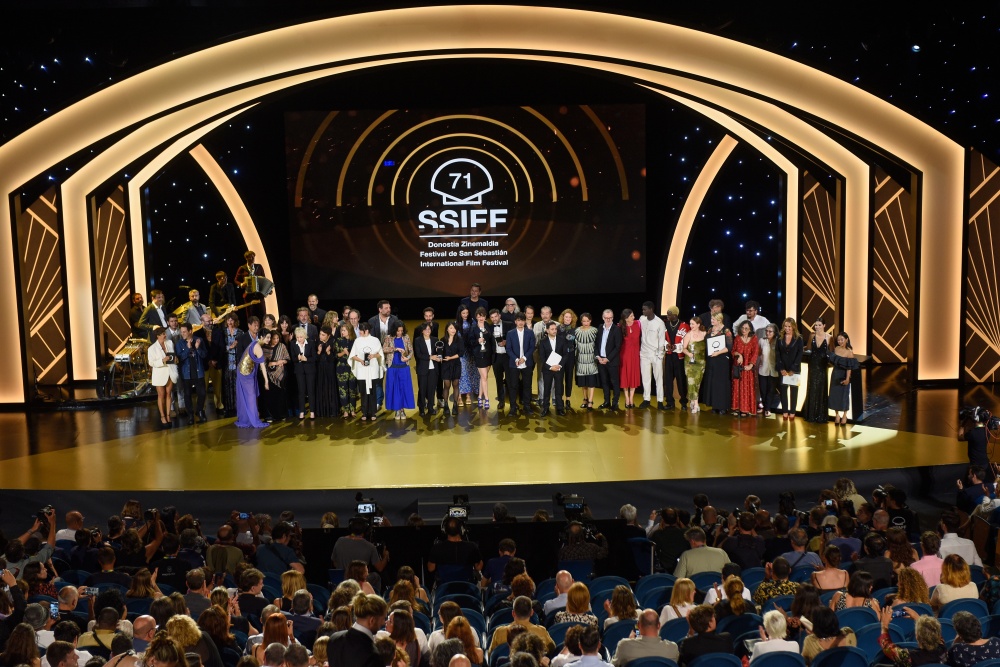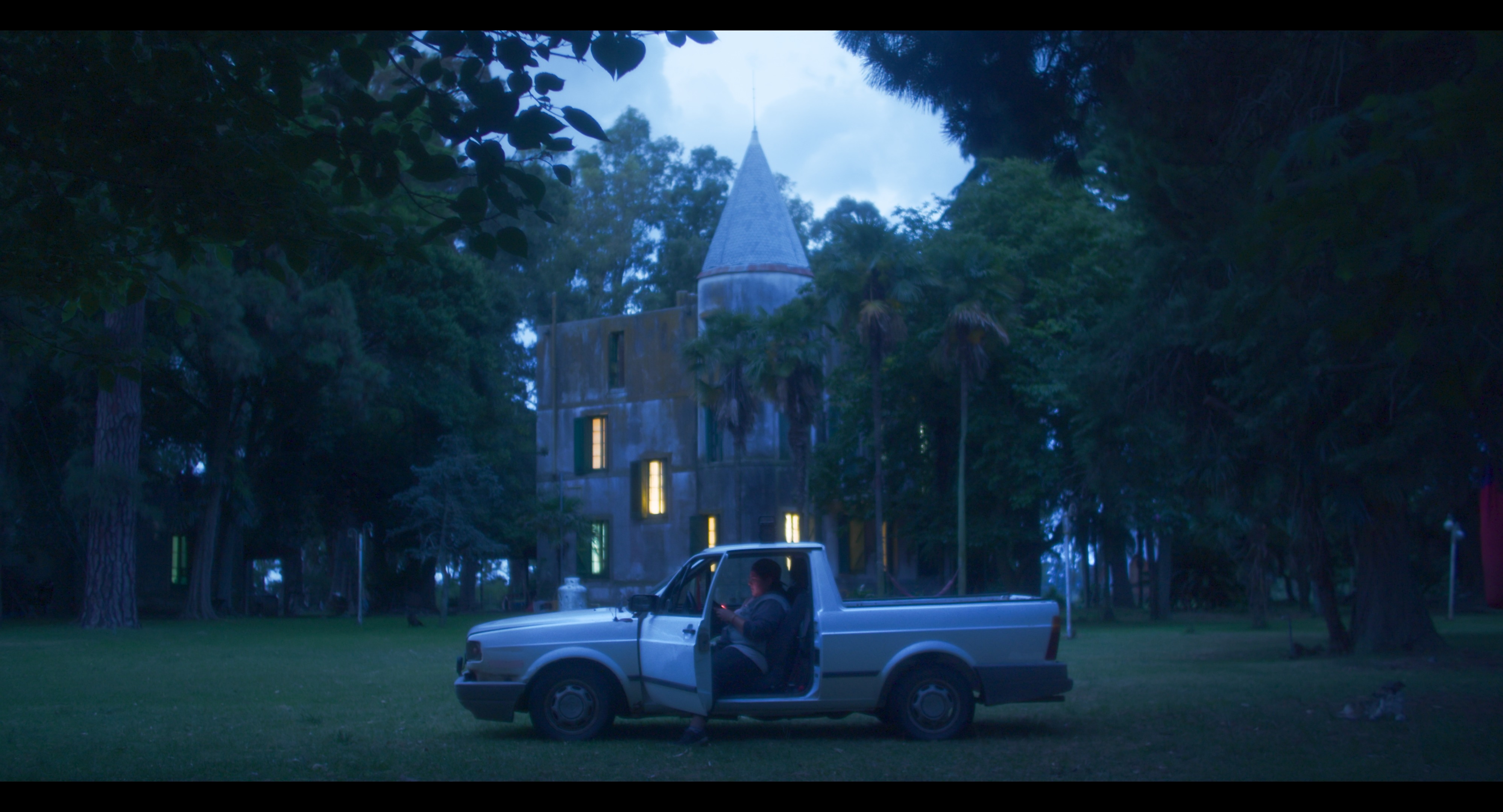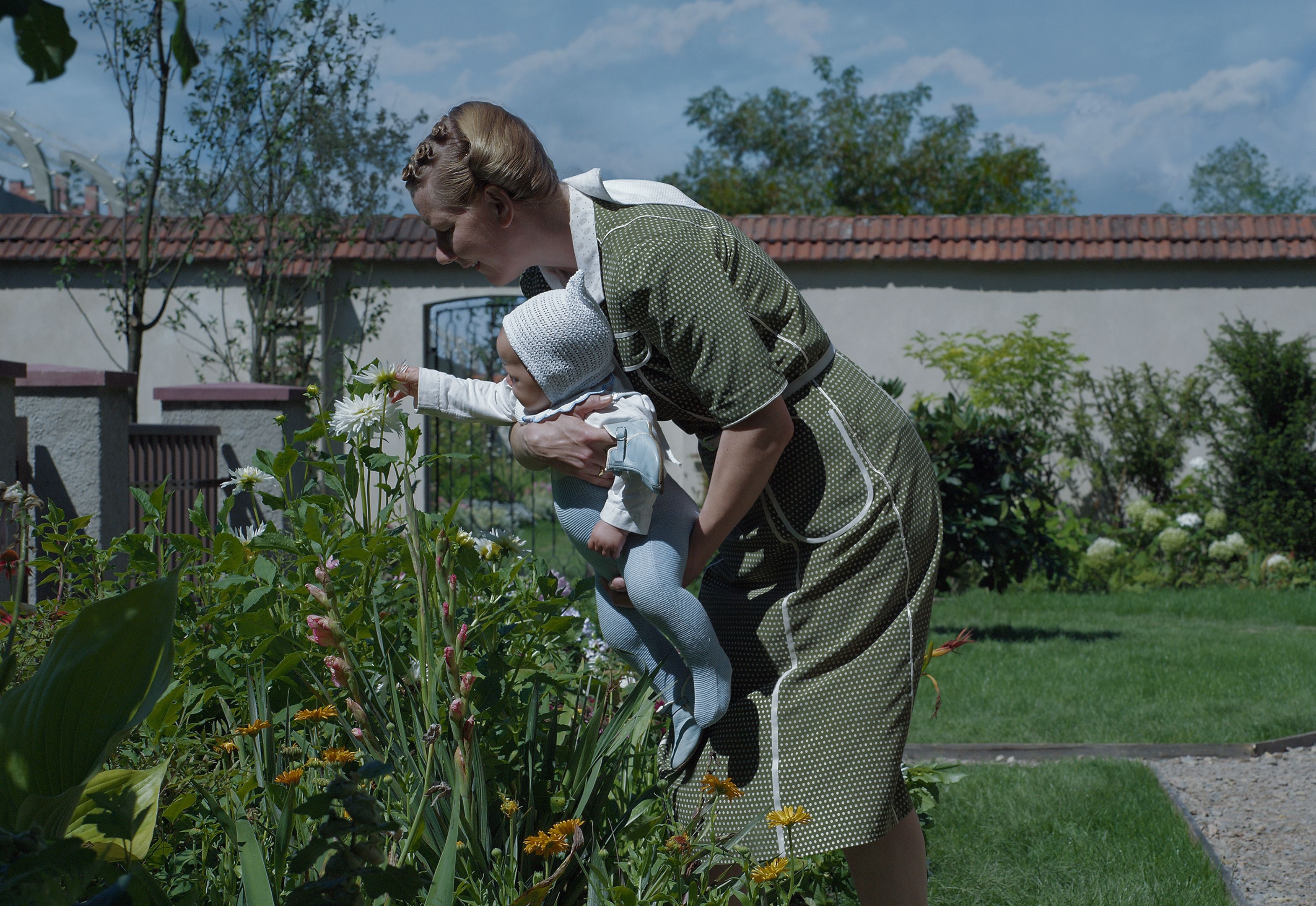
Black screen. A sea annoyed by speakers, unspeakable. The seconds move forward and the screen continues off, but an uncomfortable sound is increasingly heard. The spectators of Victoria Eugenia have begun to get nervous, to contract in the seats, to move the eyes of a black edge of the screen. Suddenly there is the landscape corresponding to the background noise: yellow light, green grassland and flowy stream. Family in the sun. Very quiet.
So Jonathan Glazer's The Zone of Interest (and, incidentally, my Zinemaldia), which analyzes the tension between what is seen and what is not shown, has kicked off. In the garden of a happy family that enjoys in the river there is a high wall and beyond the wall: Auschwitz.
Glazer refuses to depict explicitly the horror in the concentration camp, while Rudolf Höss (Christian Friedel), commander of the compound, shows the seemingly perfect everyday life of his family. Hidden violence is emerging throughout the film through fragments and technical resources such as the dysphoria between image and sound. On the one hand, the images it contains are careful and clean, perfectly representing the ideal of Arian hygiene. On the other hand, this superficial cleaning is opposed to the nasty sea we hear from the beginning to the end. It is the representative and the whistleblower of what happens outside the garden. Like the protagonists of violence, we ourselves will get used to noise and it will be easy, as the film progresses, to ignore. Glazer finds a smart and effective way to approach the terror of Auschwitz, a shocking and dark work.
The Zone of Interest competes in Pearls and, together with Glazer, we can find other names of great prestige in the section that gives access to the City of San Sebastian Public Prize. I've left Glazer and followed the day with two other benchmark directors of film history.
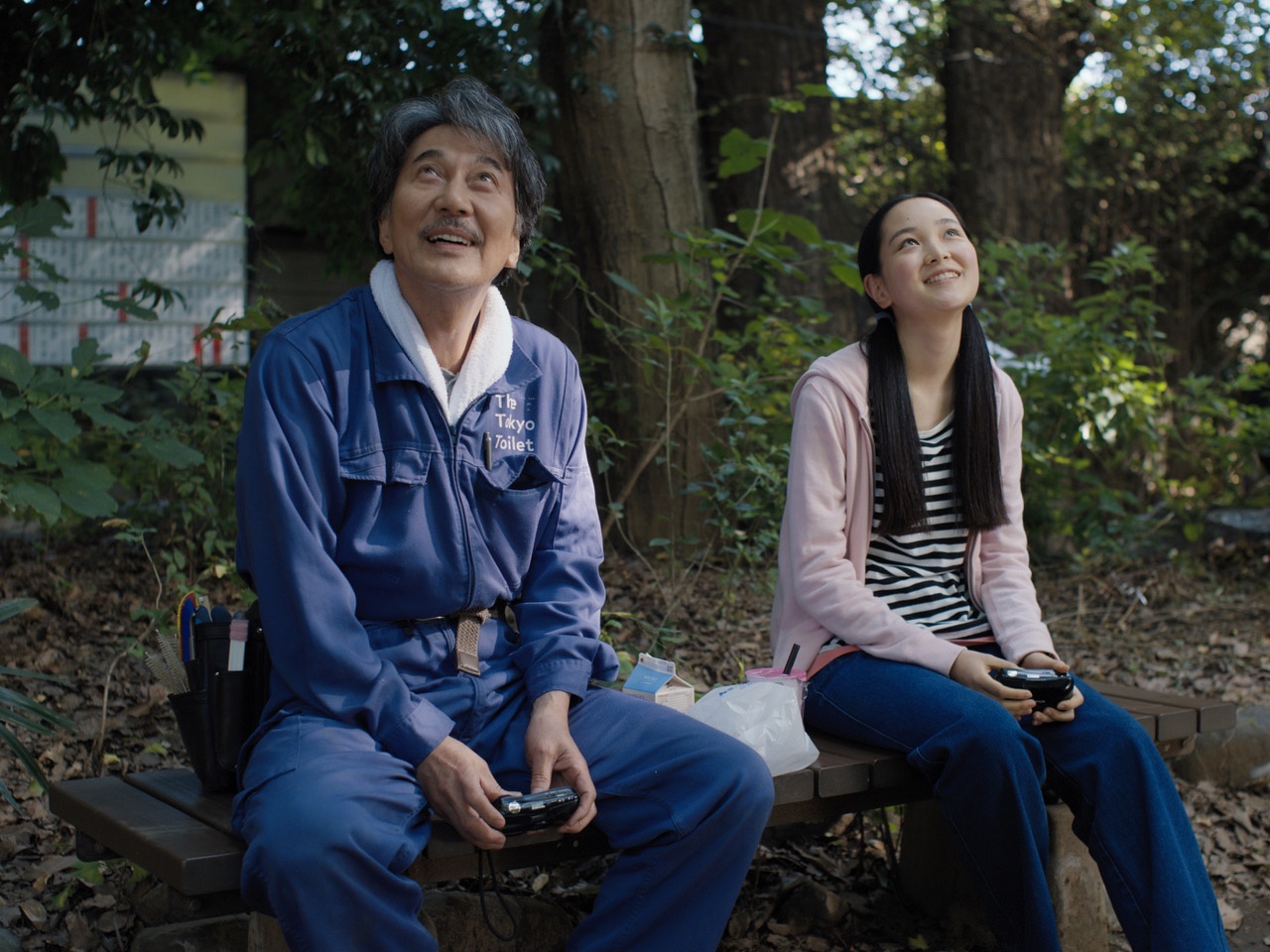
The second meeting of the day I had with the giant Wim Wenders. The German appeared to us on the screen of the room using a video, excusing us for not being in San Sebastian. Wenders presents at this year’s Zinemaldia Perfect Days, recorded and produced in Japan, following the Hirayama Silent Cleaner Toilet (Koji Yakusho).
At work, Hirayama seems invisible, almost part of the urban infrastructure, but thanks to it, he has many nuances and small pleasures that cannot be captured by the normal gaze. It is a slow film, as an exaltation of the charm and grandeur of the details of the almost millimetric repetitions of days. In this sense, like Hirayama himself, Wenders plays a prominent role in the beauty of every daily act; of course, cleanliness, which becomes art in the hands of Hirayama and under the direction of Wenders.
Perfect Days is a highly sensitive piece that gives us a memorable play by the leading actress, Koji Yakusho. For my part, however, I have not managed to join the slow flow of the film, let alone believe the absolute goodness of the protagonist, Hirayama, which seems exaggerated, to the extreme. The Trojan horse has come out of this second delivery on the head. Using delicate audiovisual coverage, does it not make us gullible with the romantic infinite repetition of the days that Wenders is chained to work?
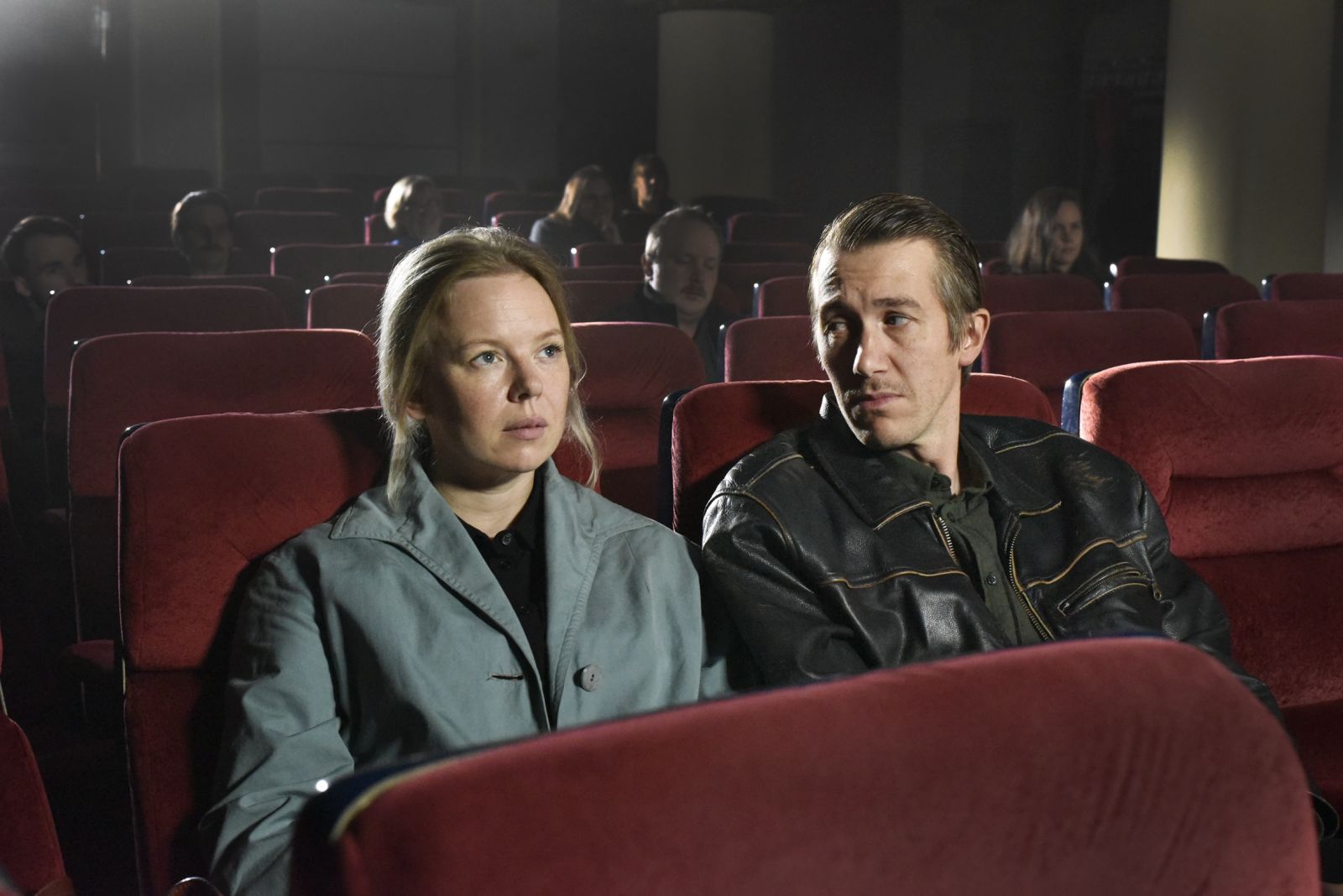
To remove the bittersweet taste of the mouth, my last date of the day was with a perfect Aki Kaurismäki. Kaurismäki is enough to dedicate an hour and twenty minutes to the masterclass of cinema and script, to collect the honest laughs of the whole room and update its irresistible style. Fallen Leaves Jury Award in Cannes and FIPRESCI at the Festival.
With its warm cynical coldness and nice humor, the film addresses a story that belongs to the Finnish working class (but could be anywhere in the world), with the excuse of love and sinister between Ansa (Alma Poysti) and Holappa (Jussi Vatán). With this film, the director reaffirms his choice of particular scenarios and forms, stating that he has the necessary magic to round out the simplest stories. Kaurismäki is a story full of humor and humanity without losing any ugly drama.
When I leave the last session, I heard a joyful “He’s done it again!” Besides agreeing with the passionate expression, Perla has made me think about how close we can perceive all those great names that make up the series. They will allow me, therefore, to add that the Aki Canyon has again been done and Wenders has been a great disappointment.
Victor Erice, winner of the Donostia Prize this year, asks the journalists of the Festival: “Do you know what the most permanent image holder is?” The answer is not digital media, not photochemical, but oil. Oil painting prevents the scarring of forgetfulness better than... [+]
As if he left the best for the end, it has been a memorable caress 71. Here, by Belgian director Bas Devos, I have seen the last day of the festival. Stefan, a Romanian construction worker, and Shuxiu, an expert researcher in mosses and daughters of Chinese migrants, are in... [+]
On the eighth day of the festival, cinema has lost all ritual and all signs of mysticism. The cinematic experience has become part of the routine: to be credited, to dismiss the staff of the room and to do it directly to the seat. Without magic, it's a mere formality. Today,... [+]
During the search for locations for the new documentary, Martín Benchimol met the castle, the sunset sign of the Argentine aristocracy. Fascinated, he wanted to meet the local owner. In this way, and full of strangeness, he met Justina, with tanned skin, who after spending his... [+]








